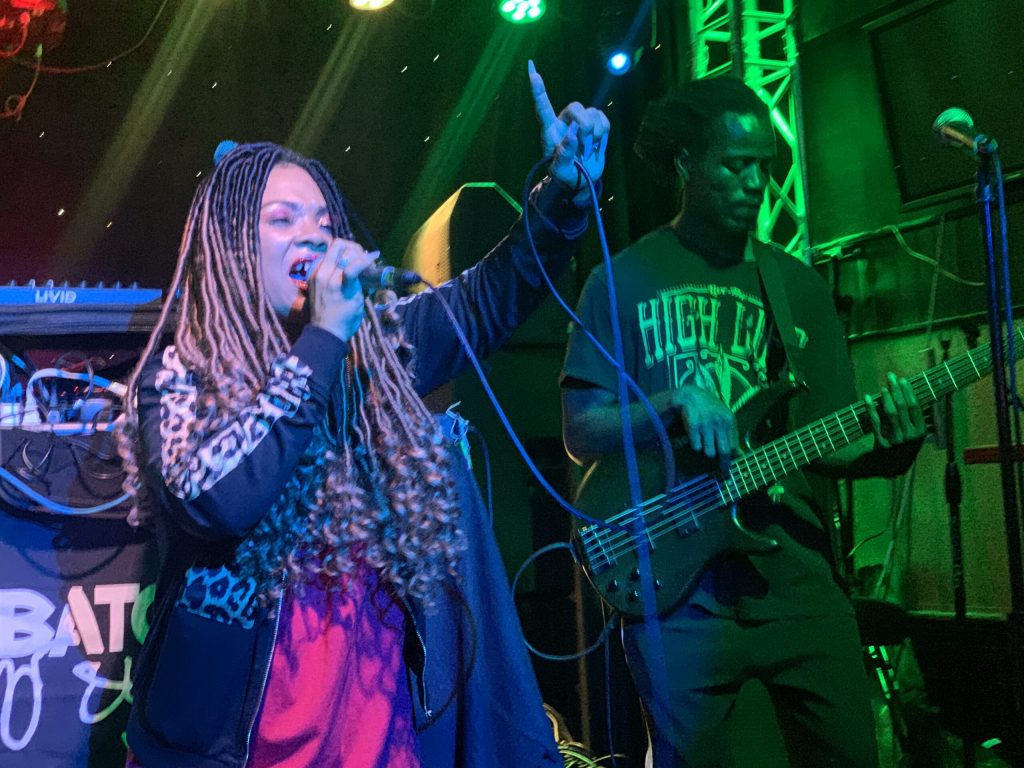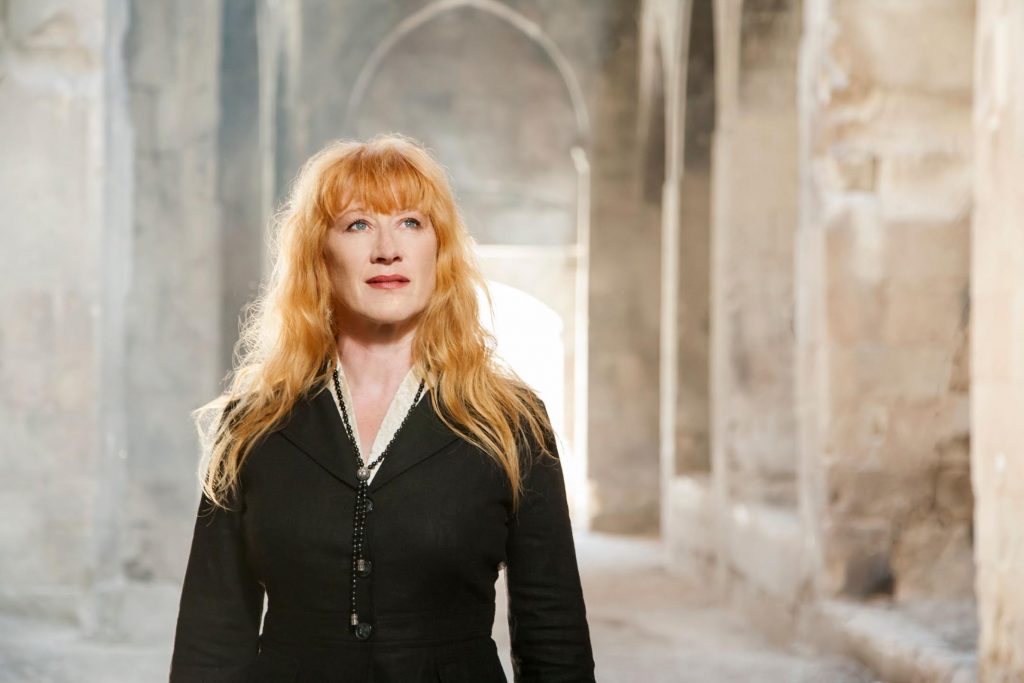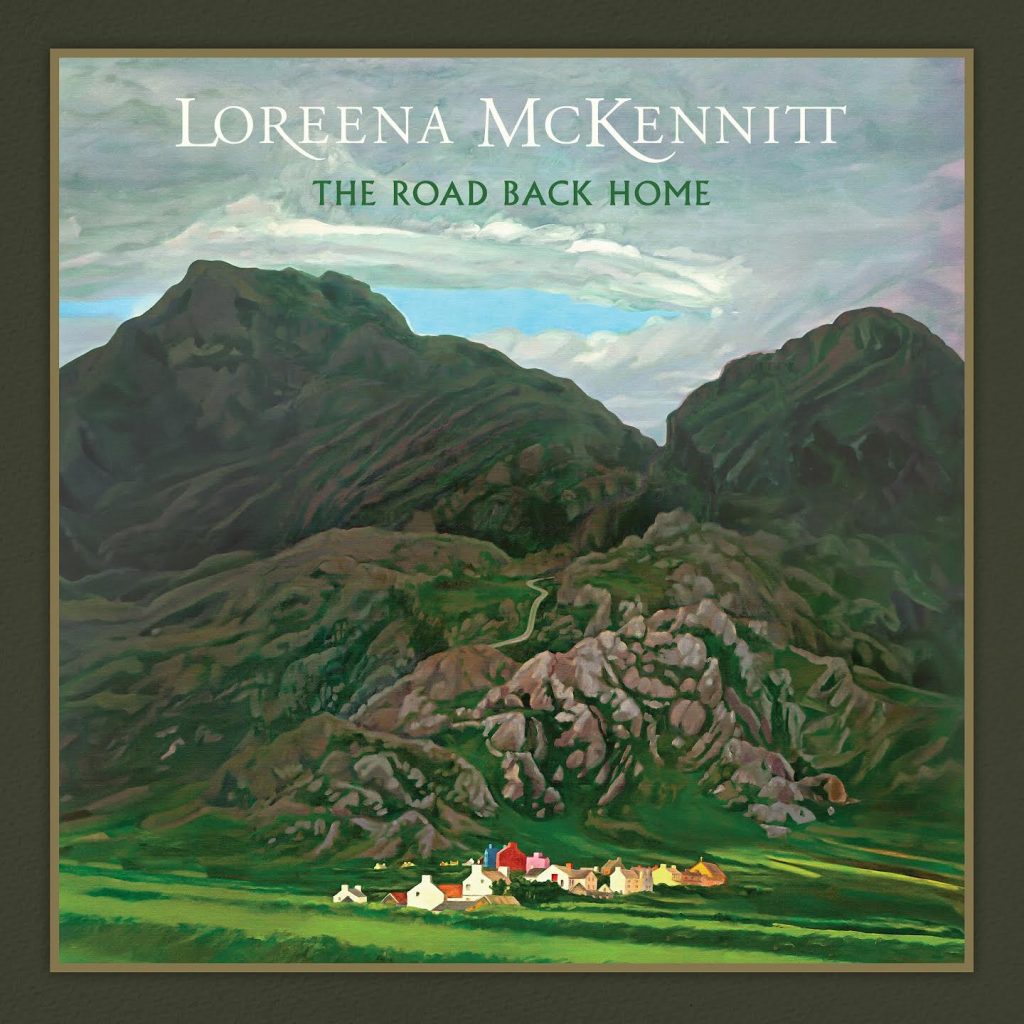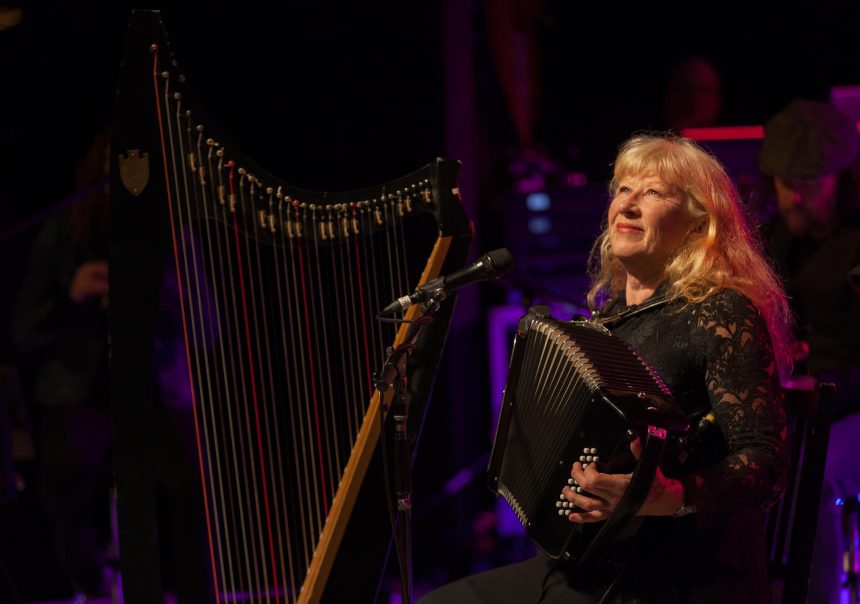Mentorship is a transformative journey, echoing its influence across generations. In this edition of Gestures, we will share personal stories that shed light on the profound impact mentors can have on an individual’s life. Loreena McKennitt‘s unique journey as a self-managed artist and Qweenn Lyahness‘s experience with her godmother Dana highlight the multifaceted nature of mentorship.
Qweenn Lyahness takes us back to the reggae scene in East Saint Louis, Illinois, where her godmother Dana played a pivotal role in shaping her character and career. Dana, the founder of Jahman Productions, not only introduced Qween to the business aspect of reggae music but also became a guiding force in her life. When Dana caught underage Qweenn at a reggae show, she begged to stay. The mentor-mentee relationship was unconventional, with Dana insisting that Qween become her “shadow,” absorbing invaluable lessons in business, customer service, communication, and event management.

“I checked in quite often throughout the day. A lot of people would probably say she was strict but let me let you in on something. That lady loved me. She showed me love. She showed me things that I had no idea would sustain me in my adult life and my adult celebrity, doing the things that needed to be done.”
Dana’s mentorship extended beyond the professional realm; she instilled in Qween a sense of responsibility, work ethic, and the importance of maintaining dignity in a challenging environment. Dana became a mother figure, offering guidance on being a woman and providing the support Qween Lyahness needed during her adolescence. Dana’s influence was transformative, shaping her into the confident and resilient artist she is today.
“I was approached to be a stripper over a hundred times because of where I’m from. I was a teenager living in East St Louis, Illinois. The biggest thing going on there was the strip clubs but I held on to my Rasta. Rasta don’t do that. I clung to it. That was my safety for everything. Walking down the street with flyers in hand at 8 pm. It didn’t matter if I was in a Crips or a Blood neighborhood. It didn’t matter if I was walking through the Gangster Disciples set. It didn’t matter if I was walking through the Vice Lord set. That’s the little Rasta girl. She cool.”
Navigating the complexities of life in East Saint Louis, Illinois, Dana went on to become a registered nurse. She worked as a school nurse while bringing shows to the area, raising a family, and taking Qweenn under her wing. Leaving Dana to become the artist that Qweenn Lyahness is today meant becoming grown and utilizing the skills Dana instilled in her. It has taught her to wear many different hats from sponsor to promoter, to backline to tour manager, to media to ticket sales.
But does she think of herself as a mentor? “I don’t see myself as a mentor but a lot of people see me as a clean-up woman. I’m strictly there to fix issues on tour and then move on about the day. When people are on tour with me, class A headliners like Black Uhuru or Indica or the Bob Marley legacy, major reggae superstars, they call me to come fix whatever problems arise. They may have a tour manager but because they have worked with me, they know my level of hospitality. Nine times out of ten, I’m on the rest of the tour with them until it’s done.”
Loreena McKennitt’s journey is a testament to the power of self-guided mentorship. Without a traditional manager, Loreena navigated the complexities of the music industry with an unconventional approach. Her mentor was a book, How to Make and Sell Your Own Record by Diane Rappaport, which served as a comprehensive guide to various aspects of the music business. Loreena’s inclination to learn and adapt allowed her to become an executive producer in her own right, managing her career with a small team.

While acknowledging the lack of a personal mentor, Loreena’s story underscores the importance of mentorship as a tool for learning from the experiences of others. She shares insights into the evolving landscape of the music business, emphasizing the challenges contemporary musicians face in a world dominated by streaming platforms.
“I knew what I didn’t want. It became clear that I didn’t have the temperament to be managed by a traditional manager. Then they say I’m unmanageable, but it was more like I had learned a lot about the business and I wasn’t prepared to just hand it over and be left in the dark at all. What I have learned to do is quite unique in the music business as an artist. I have three staff as well as some contractors that I draw upon for making a recording. I could be mentoring people.
“The thing is that the music business used to have two relatively strong halves. One half is the business where you could make music commodify it and sell it. That large part is broken. For example, when artists such as myself would sell CDs or vinyl, we’d get $.25, roughly $.25 per song on each of those CDs or vinyl. Once streaming came in, with a Spotify model that pays artists about $.10 per 1,000 plays or $.00001 in Google Play, I couldn’t make it.”
The trust built from reading a book and forging forward through McKennit’s career replaced the human connection of mentorship. What about the next generation? Who will protect the little Rasta girl spreading flyers for reggae shows? Who will transcribe the folk songs of the Celtic people? Without mentorship in any forms, we can expect to see less joy through storytelling in musical format.
Loreena had this to say on the subject: “There aren’t the circumstances for somebody to start out as I did – busking at the Saint Lawrence Market in Toronto or London, England, at Convent Garden – to have a sustainable career. I became resourceful in saying, well, what can we do that is somewhat meaningful?”
Loreena McKennit’s The Road Back Home will be released on Friday, March 8, 2024. It is a nostalgic embrace of simpler times, capturing the essence of local performances that inspired her early in her career. This collection of 10 songs, some dating back to her folk circuit days, is a testament to her unwavering connection to Celtic music. Perhaps the songs have mentored her. The inspiration still flows from her as she embarks on another tour.

“What remains is the touring side of the business. It’s not healthy to be out on the road touring all the time. I’m lucky because I can continue doing this. There’s no business argument for me to make another recording in the lineage of The Visit, The Mask and the Mirror, The Book of Secrets, or The Ancient Muse. Those are quite expensive recordings as you can appreciate, because they’ve got musicians from different parts of the world. Sometimes we use the St. Petersburg Chorus or a string ensemble or a hurdy-gurdy player. It’s really the eclecticism of the instruments and the musicians who play them very well. That’s an expensive creative footprint. There simply isn’t a business argument to be making such complex recordings anymore.”
“The touring side for me is fine. I’m okay, largely because my career was built and reached its pinnacle around The Book of Secrets (circa) ‘98 or ‘99. I’m kind of a legacy artist so I’m good to go. Nobody should worry about me; I’m fine. What I’m talking about is the next generation.”
Jason Hahn of the String Cheese Incident recounted his time touring with Loreena McKennit through Canada in 2005. He also recorded with her on her 2006 album, Ancient Muse. “Loreena is amazing to work with. She ran the show, coordinated rehearsals, directed a video shoot, and she can get into the mode of her songs in an instant.” Many musicians can testify to Loreena’s work ethic and collaborative mastery.
In addition to her musical career, McKennit has been recognized for her philanthropic initiatives including the Falstaff Family Centre, and the Cook-Rees Memorial Fund for Water Search and Safety, and she has been named an Honorary Colonel of the Royal Canadian Air Force.
Apprenticeship is so important. Why would you not want to learn from the experience of others? To get their tricks of the trade, or to get their wisdom, knowledge, and insight rather than reinventing the wheel and starting from scratch?
I think perhaps women tend to be a bit more consultative or collaborative in their approach. Maybe there is a tendency for the male brain to say, oh no, I know all I need to know. I’m good to go. I think there is a big role open to mentoring, whether you’re male or female.
Loreena McKennitt
Both narratives highlight the resilience and adaptability that mentorship can instill in individuals. Qweenn Lyahness’ story emphasizes the personal and professional growth facilitated by a strong mentor figure, while Loreena McKennitt’s experience showcases the power of self-mentoring and the continuous pursuit of knowledge.
Both narratives highlight the resilience and adaptability that mentorship can instill in individuals. Qweenn Lyahness’ story emphasizes the personal and professional growth facilitated by a strong mentor figure, while Loreena McKennitt’s experience showcases the power of self-mentoring and the continuous pursuit of knowledge.Mentorship, in its various forms, continues to be a vital force in the music industry – offering guidance, wisdom, and a sense of community. Sharing our learned experiences is what connects us through musical lyrics and melodies.
As Qweenn Lyahness and Loreena McKennitt exemplify, the echoes of mentorship resonate far beyond the immediate relationship, shaping the trajectory of artists and contributing to the rich tapestry of musical history. Many may say that they are not a mentor, but the future generation is watching us, no matter the title.










